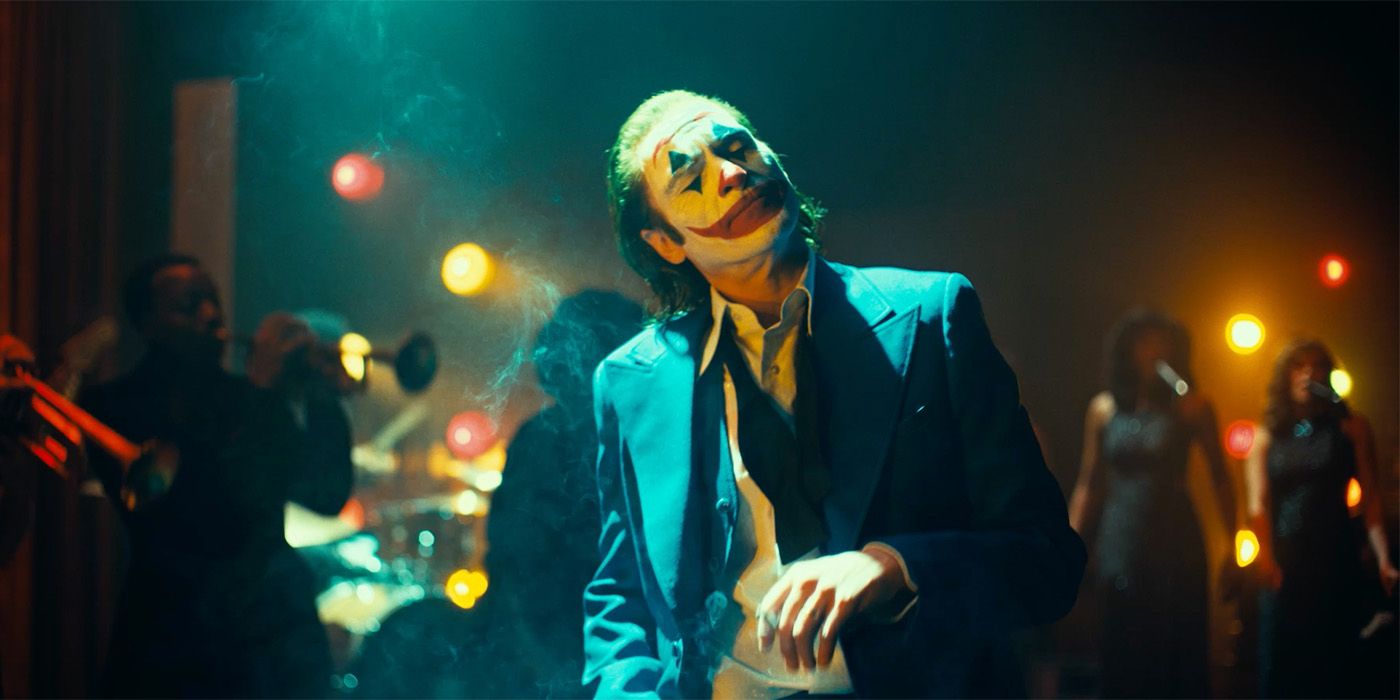
Whatever one thought of Todd Phillips‘s Joker, it earned its share of acclaim and accolades, and nabbed Joaquin Phoenix a Best Actor Oscar. Whether it bore too close of a resemblance to certain Martin Scorsese films, or seemed to empathize too much with reckless violence as the solution to societal issues, it was at least a somewhat different take on a comic book character. And Phoenix’s deranged performance and transformation from Arthur Fleck to Joker was captivating.
It’s a film that didn’t really need a sequel, yet even this seeming one-off take on the Joker wound up with one. At least it tries to maintain a streak of originality by touting itself as a musical and bringing in the talents of Lady Gaga as famed lackey/romantic interest of Joker, Harley Quinn. This should have been enough to keep the spark alive.
Yet Joker: Folie a Deux is a mediocre work, despite some interesting ideas. The script is overstuffed with plot points and has a meandering sense of focus. It spends half of the film inside Arkham Asylum as Phoenix’s Arthur seems to pivot between embracing his Joker identity and just wanting to be done with everything. He’s a reluctant celebrity for his crimes and somewhat charms the Arkham guards, but he is also bullied by his fellow inmates. It’s an attempt at creating duality, but it comes across as unfocused and unclear on what it wants to be.
While Phoenix is still solid, he doesn’t seem quite as fully invested in the role this time. The new (for this sub-universe) character of Quinn attempts to have a duality as well, but has poor execution. The film teases a plot point of Quinn stealing the show from Joker and his feelings of jealousy, but this is then abandoned with no concrete resolution. Eventually, the movie pivots to being a courtroom drama, as Joker is tried for his crimes from the first film, but this angle is not all that captivating either. We get a new take on Harvey Dent as a young, cocksure assistant district attorney who is more entitled punk than noble public servant, but this is too minor to matter.
In line with the film’s overall half-baked approach is the musical aspect, executed with a thud. The film isn’t really a musical, and to be fair, Phillips had admitted interviews that it isn’t a musical in the true sense. Perhaps the studio interfered. Either way, the remnants of the musical aspect are utterly disappointing. The film never truly embraces the surrealism inherent in musicals or goes for those bombastic sequences that might have benefited larger than life characters such as Joker. Instead, the scenes are mostly Gaga and Phoenix singing intentionally bad versions (Phillips asked them to sing poorly!) of Sinatra and other showtune style songs. The characters are literally singing in the context of the scenes, and this literalism prevents the scenes from soaring the way they could. Unsurprisingly, the scenes that do cut away from reality are the better ones, but these are too few and far between.

Joker: Folie a Deux is a film that struggles with what it wants to be. Brendan Gleeson is delightfully over the top as a Irish Arkham guard, playing up the Irish cop stereotype to hilarious extremes. The film also has a final message that seems to criticize certain elements of the first film’s fanbase and has a shocking ending in the wider context of franchise films, even if the script ends up telegraphing where it’s going in the third act. Had the preceding two hours been well-written and executed, this final act might have been truly excellent.
Instead, Phoenix’s rendition of the character comes to a seeming end with a dull stumble. While nowhere as bad as some reviews seem to be suggesting, Joker: Folie a Deux feels like the audience has been fooled. It’s everything and nothing all at once, and is a snooze to watch. Whatever the flaws of the first film, it did have elements that kept you locked in. This just leaves you wanting.
Tell us your thoughts on Joker: Folie a Deux below and rank it now on Flickchart!






